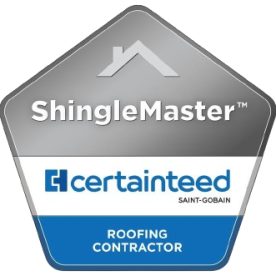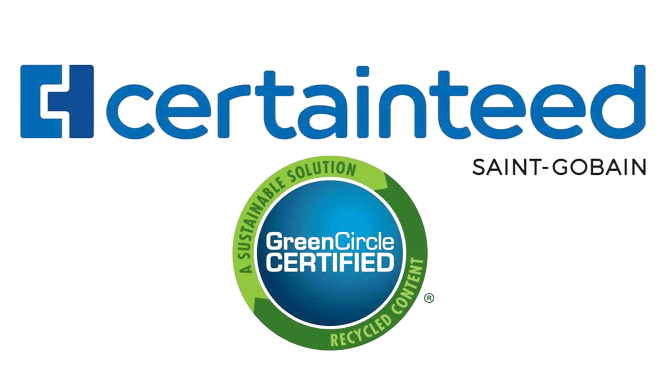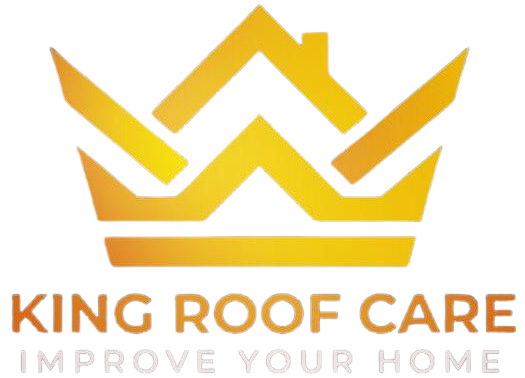Kirkland, Redmond, Kenmore, Woodinville, Bellevue, Lynnwood, Mercer Island, Sammamish, Bothell, Renton, Everett, Seattle & neighboring areas
Seattle Roof Replacement and Installation
Your Trusted Roofing Company
- Free Estimates and Inspections
- Locally Owned & Operated
- Licensed and Background-checked
- 5 Star Ratings by Seattle Homeowners


Request Free Inspection Now!
Your Trusted Partner for Roof Replacement in Seattle
Ready to give your roof a fresh start? Meet King Roof Care, your go-to team for top-notch roof replacement right here in Seattle. We’re all about keeping it real, local, and making your home stand strong against the Pacific Northwest weather.
When it comes to roof replacement in Seattle, we’ve got the inside scoop on handling the rain, wind, and storm roof damages. Our mission is to not only toughen up your roof but also give your home that extra curb appeal.
At King Roof Care, we’re all ears. Our process is a two-way street – clear communication, no hidden surprises. Whether it’s understanding your needs or fitting into your budget, we’re here to make your roof replacement journey in Seattle smooth sailing.
Being local is our jam. Seattle isn’t just where we work; it’s our stomping ground. We get the vibe, the style, and the weather challenges. Our roof replacement solutions aren’t just about durability; they’re about fitting into Seattle’s unique character.
So, if you’re on the lookout for roof replacement in Seattle, your search ends here. King Roof Care is here to bring our local touch, dedication, and quality to your home sweet home. Your satisfaction is our mission, and we’re ready to give your roof the love it deserves.

Signs Your Roof Needs Replacement
In the ever-changing weather of Seattle, it’s essential to keep an eye on your roof’s condition. Here are some signs that indicate it might be time for a roof replacement:
- Shingle Damage: Check for visible signs of shingle damage, such as cracking, curling, or missing shingles. The damp climate in Seattle can accelerate the wear and tear on shingles, compromising their effectiveness.
- Water Stains on Ceilings: Water stains on your interior ceilings are a clear indication of a potential roof leak. Seattle’s frequent rainfall can expose weak points in your roof, leading to water infiltration.
- Sagging or Warped Roof Deck: A sagging or warped roof deck may suggest underlying structural issues. The combination of rain and moisture in Seattle can weaken the roof’s support structure over time.
- Increased Energy Bills: A deteriorating roof may result in poor insulation, leading to increased energy bills. If you notice a spike in your heating or cooling costs, it could be a sign that your roof’s energy efficiency has been compromised.
- Moss or Algae Growth: Seattle’s damp climate creates an ideal environment for moss and algae to thrive on rooftops. While not necessarily an immediate threat, excessive growth can damage shingles and lead to decay.
- Granule Loss: Check for granule loss in asphalt shingles. Granules protect shingles from UV rays, and their loss can signify aging or damage. Seattle’s weather conditions can accelerate granule erosion.
- Interior Mold or Mildew: A leaking roof can create a conducive environment for mold and mildew growth inside your home. If you notice these signs, it’s crucial to address the roof issue promptly to prevent further damage.
- Visible Wear and Tear: Over time, general wear and tear become evident. If your roof looks weathered, with visible signs of aging and deterioration, it might be time to consider a replacement.
- Frequent Repairs: If you find yourself frequently patching up leaks or addressing other issues, it might be more cost-effective in the long run to invest in a new roof. Continuous repairs may indicate that the overall integrity of the roof is compromised.
- Roof Age: Consider the age of your roof. Most roofs have a lifespan of 20-30 years, depending on the materials used. If your roof is nearing the end of its expected lifespan, it’s wise to start thinking about a replacement.
If you spot any of these signs, chatting with King Roof Care is a smart move. We can check out the damage, figure out if a roof replacement is the way to go for your Seattle home, and give you the lowdown. Keeping up with regular inspections and swapping out your roof when needed not only safeguards your investment but also makes sure your roof stays solid for the long haul.
Customer Reviews
See What Our Customers Say About Us





Cost of Roof Replacement in Seattle
If you’re eyeing an asphalt shingle roof replacement around here, you’re looking at costs starting from $6.50 to $10.50 per square foot. Just to break it down, for a 2,000-square-foot roof, that’s roughly in the ballpark of $13,000 to $21,000. It’s worth noting that these numbers are a starting point, and the actual cost for your specific project might swing a bit based on things like the materials you pick, the size of your roof, and any other unique stuff going on with your property. Here’s a breakdown of some key factors influencing the cost:
- Roof Size: The larger the roof, the more materials and labor will be required, impacting the overall cost.
- Roofing Materials: The choice of roofing materials significantly affects the cost. Common options include asphalt shingles, metal roofing, tile, and slate. Each material comes with its own price range, with high-end materials generally costing more.
- Roof Pitch and Complexity: Steeper roofs or roofs with intricate designs may require additional labor and safety measures, influencing the overall cost.
- Underlayment and Decking: If the underlying structure of your roof, such as the decking and underlayment, needs repairs or replacement, this can add to the overall cost.
- Accessibility: The accessibility of your roof can impact labor costs. If your home has challenging access points, it may require more time and effort, affecting the total cost.
- Local Labor Rates: Labor costs vary by location, and Seattle’s cost of living may influence the hourly rates charged by roofing contractors.
- Permits and Regulations: Obtaining necessary permits and complying with local building codes may add to the overall cost of a new roof.
- Additional Features: Features such as skylights, chimneys, or multiple roof levels can add complexity to the installation, impacting the cost.
- Warranty and Quality: High-quality materials and extended warranties may come at a higher upfront cost but can offer long-term savings and peace of mind.
Want a spot-on estimate? Just reach out to us at King Roof Care. We’ll dive into your specific needs, check out what’s going on with your current roof, and give you the lowdown on costs based on what you want and the quirks of your home. And here’s the scoop – splurging on a top-notch roof replacement isn’t just an expense; it’s a smart investment. It boosts your home’s value and serves as a solid shield against Seattle’s unpredictable weather. So, hit us up for a chat and let’s get your roof sorted!
Our Process is Simple!
01.
Call us now
- Just Call Us on the mentioned phone number or fill out the simple online form.
02.
Get Free Inspection
- We will reach out to you and discuss your issue.
- Immediately, we schedule a Free Inspection of your property.
03.
Finalize & Done!
- After on-property visit, we explain the issue to you & give you a competitive Quote for the job. You accept our offer, and it’s Done!
8-Steps for your Seattle Roof Replacement
- Roof Assessment: Initiate the process with a comprehensive evaluation of your current roof. Engage a professional for insights and recommendations on whether repair or replacement is the best course.
- Cost Estimates: Collect detailed cost estimates from multiple roofing contractors. Evaluate not only the price but also the reputation, warranties, and material quality offered by each contractor.
- Regulatory Compliance: Ensure compliance with local regulations by checking permit requirements. Avoid potential obstacles by securing the necessary approvals before proceeding.
- Material Selection: Choose roofing materials that align with your preferences and budget. Asphalt shingles, metal, slate, or other options – make a decision that suits your aesthetic and functional needs.
- Scheduling and Planning: Collaborate with your selected contractor to establish a project timeline. Consider the weather conditions for an optimal installation period and plan accordingly.
- Preparation and Removal: Prepare for the replacement by safeguarding the surrounding areas. Begin the removal of the existing roofing materials, creating a clean slate for the upcoming installation.
- Installation and Finishing Touches: Start the replacement by installing underlayment, flashing, and the selected roofing material. Ensure a meticulous installation process for a durable and well-ventilated roof. Complete the project with final touches such as ridge vents and caps.
- Inspection and Maintenance Guidance: Conduct a final walkthrough with the contractor to inspect the completed work. Ensure it aligns with your expectations. Seek guidance on post-installation maintenance and keep detailed records for future reference.
By following these eight steps, you can navigate the roof replacement process systematically, ensuring a successful and well-executed outcome for your home.
Roof replacement options for Seattle area
Picking the perfect roof for Seattle is like finding the ideal raincoat – it’s got to handle a lot of rain and maybe even a bit of moss. You know, that typical Seattle charm. So, let’s break down the best options that can handle the drizzles and keep moss at bay.
- Architectural Asphalt Shingles:
- Pros: Durable, cost-effective, and available in a variety of styles and colors.
- Cons: Prone to moss and algae growth in Seattle’s damp climate.
- Metal Roofing (Aluminum or Steel):
- Pros: Durable, long-lasting, and resistant to moss and algae. Provides excellent rainwater shedding.
- Cons: Initial cost may be higher, but it offers long-term benefits.
- Composite Roofing:
- Pros: Combines various materials for durability and aesthetic appeal. Resistant to moss and algae growth.
- Cons: Cost may vary depending on the specific composite material used.
- Synthetic Roofing Materials (Polymer or Rubber):
- Pros: Mimic the appearance of natural materials, resistant to moss and algae, and low-maintenance.
- Cons: Long-term durability may vary, and appearance may not match natural materials exactly.
- Cedar Shake or Shingle Roofing:
- Pros: Natural, visually appealing, and resistant to insects.
- Cons: Requires regular maintenance, and may be prone to moss and algae growth.
- Concrete or Clay Tiles:
- Pros: Durable, fire-resistant, and resistant to moss and algae. Suitable for warmer climates.
- Cons: Heavy, requiring additional structural support.
- Metal Shake or Shingle Roofing:
- Pros: Combines the aesthetic appeal of traditional shakes with the durability of metal.
- Cons: Initial cost may be higher than other metal roofing options.
- Rubber Roofing (EPDM):
- Pros: Lightweight, durable, and cost-effective. Suitable for flat or low-slope roofs.
- Cons: May not be as visually appealing as other materials, but it’s resistant to moss and algae.
- Green or Living Roofs:
- Pros: Provide natural insulation, absorb rainwater, and contribute to environmental sustainability.
- Cons: Requires additional structural support, regular maintenance, and a higher upfront cost.
Alright, when you’re on the hunt for the perfect roof in Seattle, think of it like assembling the dream team – it needs to be tough on moss and algae, handle the constant rain without breaking a sweat, and vibe with Seattle’s unique climate. So, step one: prioritize materials that can stand up to the damp and moss-friendly atmosphere.
Now, don’t go solo on this mission – call in the pros! Contact King Roof Care who knows the Seattle scene inside out. We’ll help you figure out the best material that checks all your boxes and doesn’t break the bank. After all, your roof should be as resilient as you are in a Seattle downpour.
Do I have to tear off the old roof to replace it?
In many cases, yes, it’s advisable to tear off the old roof before replacing it with a new one. Removing the existing roofing material provides several benefits:
- Inspection of Substructure: Removing the old roof allows contractors to inspect the underlying structure for any damage, such as rot or deteriorated decking. Identifying and addressing these issues is crucial for ensuring the stability and longevity of the new roof.
- Proper Installation: Tearing off the old roof provides a clean slate for the installation of the new roofing material. This allows for proper attachment, flashing, and underlayment, reducing the risk of leaks and ensuring the new roof’s integrity.
- Weight Considerations: Multiple layers of roofing can add significant weight to the structure. Removing the old roof helps in avoiding potential structural issues due to excess weight, especially in regions with building code restrictions.
- Identification of Issues: The tear-off process allows for the identification of any issues with the existing roofing system, such as leaks, inadequate insulation, or poor ventilation. Addressing these issues during the replacement process contributes to the overall efficiency of the new roof.
However, in some situations, local building codes or the condition of the existing roof may allow for a process known as “roof overlay” or “roof-over,” where a new layer of roofing material is installed over the existing one. This approach is generally quicker and less expensive but comes with its own set of considerations and limitations.
We are waiting at your doorstep...😎
Our experts are fast, efficient and according to the industry standards. We would love to make your Roof look new again! Fill out this form below for a free inspection. You are just one step away.
